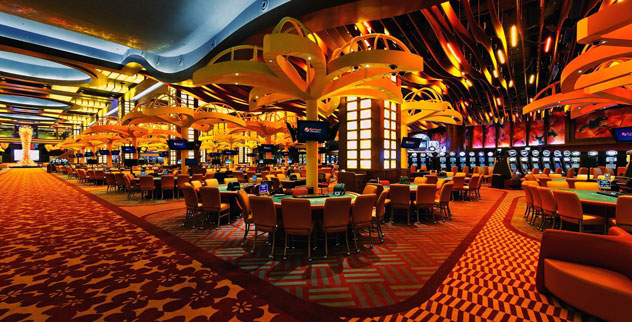
Gambling games have captivated players over the ages, evolving from simple pastimes to intricate adventures that integrate fortune, skill, and fun. From the ancient roots of gambling in civilizations such as Mesopotamia and Rome to the dazzling corridors of current casinos, the history of these games shows much about human nature and our interaction with chance. As cultures have merged and technological advancements have occurred, casino games have evolved, illustrating shifts in society and advancements in gameplay.
The initial iterations of gambling likely included simple dice games and wagering on the results of sports competitions. Over time, these primitive activities grew into more complex games like playing card games, roulette, and the variety of slot games that fill casino floors today. Each period brought its distinct regulations, visual styles, and sociocultural significance. At present, casino games maintain their evolution with the rise of online platforms, enabling players from everywhere to engage in a common experience, further fusing the traditional with the age of technology.
Early Roots of Casino Activities
Gaming activities have origins that stretch back to historical societies, where wagering was strongly embedded in social practices and social rituals. The initial known forms of betting appeared in Mesopotamia around 3000 BC, including basic die activities made from knuckle material. These initial activities laid the basis for more advanced gambling activities, reflecting human beings’ natural urge to find fortune and entertainment through chance.
As civilizations developed, so did their betting pursuits. In ancient China, around 2300 BC, objects were discovered that were similar to primitive rudimentary forms of a lottery activity. More organized forms of betting developed in the ancient Roman civilization, where activities of luck were a frequent pastime, often taking place in community gatherings. The Romans developed various betting games, which included die and board games, showing the pervasive nature of betting across different social classes.
With the flow of time, these early activities shaped the development of modern casino activities. In the Middle Ages, card activities became prevalent in European culture, paving the way for the professional gaming venues we know today. The change from casual gambling to organized gaming in taverns and private homes marked a major transformation in how people engaged with games of chance, leading to the eventual establishment of gaming houses as specialized venues for betting.
The Rise of Current Casino Gaming
The late 20th century marked a crucial change in the realm of gaming, driven by tech innovations and shifts in cultural attitudes towards betting. The emergence of personal computers and the internet revolutionized the way players engaged with their favorite casino games. Online casinos emerged, enabling enthusiasts to enjoy traditional table games like Texas Hold’em and blackjack from the comfort of their own homes. This emerging digital landscape not only broadened availability to casino games but also attracted a newer demographic who found the comfort and variety attractive.
As online gambling gained traction, so did developments in gaming technology. The development of sophisticated software and graphics converted conventional gambling games into engaging experiences. Gamblers could now interact with authentic live dealers through real-time broadcasts, importing the atmosphere of physical casinos directly into their living rooms. This blending of live gaming with digital interfaces created a unique hybrid experience that elevated the community element of gambling, allowing it possible for individuals to engage and compete with fellow gamers around the planet.
Additionally, the rise of mobile gaming dramatically changed the gambling environment. With the widespread use of smartphones and tablets, gamblers can access their favorite casino games anywhere, at any time. Mobile apps offer a vast array of games optimized for mobile screens, catering to the fast-paced daily life of modern users. This accessibility has produced rising engagement in casino games, contributing to the exponential growth of the gaming industry. As a result, the future of the gaming industry continues to develop, adjusting to technological advancements and shifting consumer preferences.
The Impact of Technology on Casino Games
The evolution of technology has greatly changed casino games, enhancing the overall gaming experience for players around the world. With the introduction of the internet, online casinos were created, allowing players to enjoy their favorite games from the comfort of their homes. This shift not only made casino games more accessible but also expanded the variety of games offered, as online platforms could offer many different versions of traditional games without the limitations of physical casinos.
Mobile technology further transformed the casino gaming landscape. As smartphones and tablets became widespread, players now have the ability to engage in casino games whenever and wherever they want. online casino zonder cruks This flexibility has led to the development of dedicated mobile applications and optimized websites that provide seamless gaming experiences. Additionally, innovations such as live dealer games have brought the authentic atmosphere of a casino into players’ homes, connecting between physical and online gaming.
Moreover, advancements in AI and virtual reality are leading to the next generation of casino games. AI improves game design and player interaction, creating customized experiences based on user behavior and preferences. Meanwhile, virtual reality offers immersive environments where players can engage in a virtual casino environment, making the gaming experience more engaging and realistic. As technology continues to evolve, the future of casino games seems bright, filled with endless possibilities for innovation and entertainment.